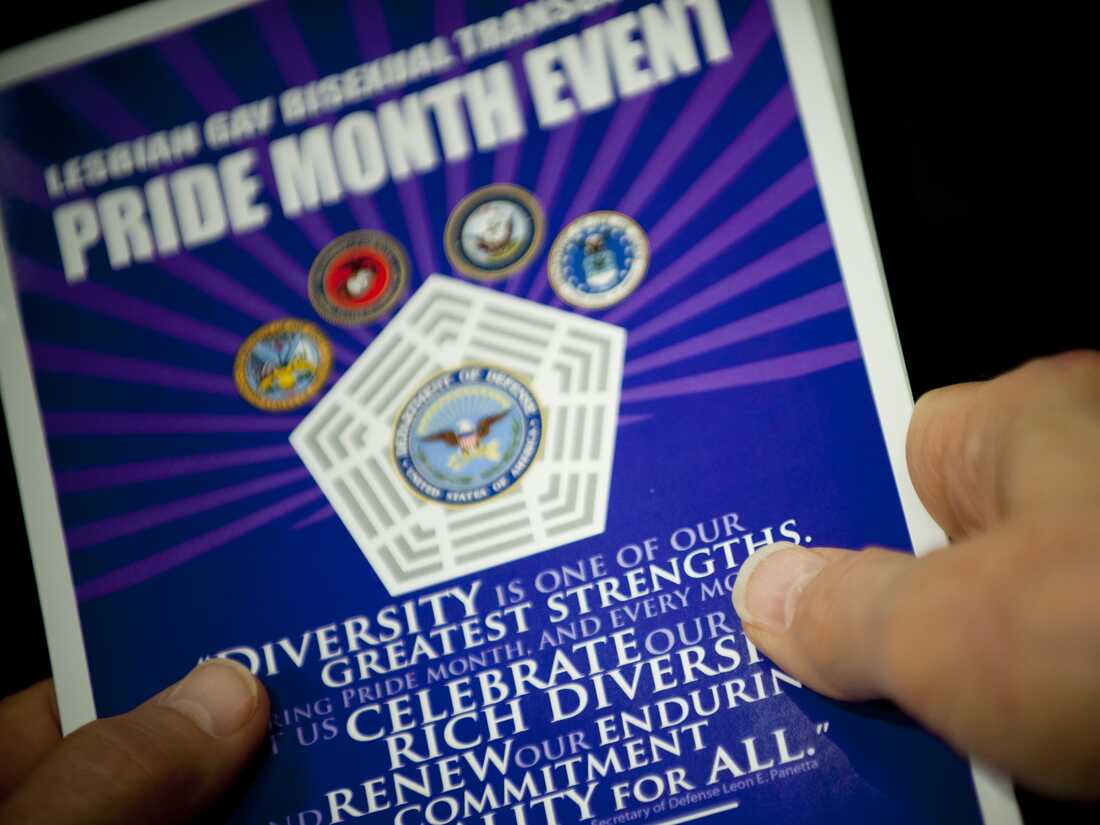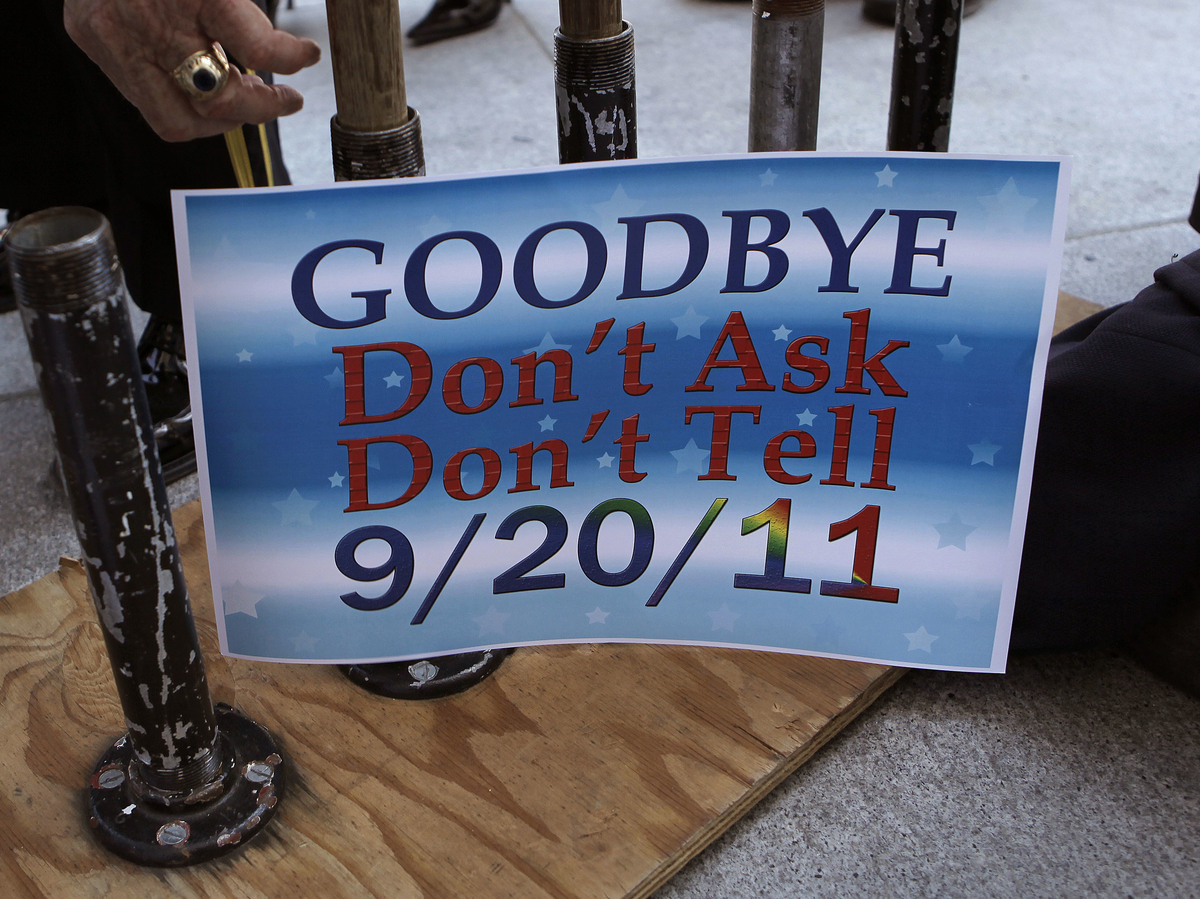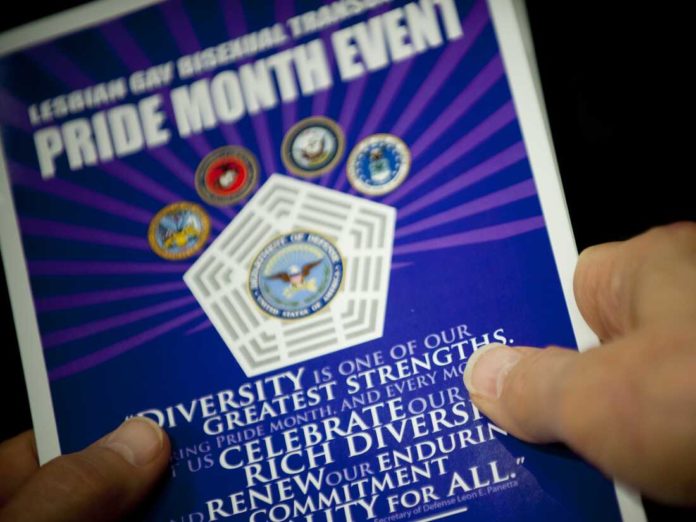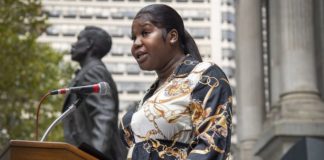
A pamphlet from a Pride Month event at the Pentagon in 2015. Monday marked the 10th anniversary of the repeal of the “don’t ask, don’t tell” policy in the U.S. military. Smith Collection/Gado/Getty Images hide caption
toggle caption
Smith Collection/Gado/Getty Images

A pamphlet from a Pride Month event at the Pentagon in 2015. Monday marked the 10th anniversary of the repeal of the “don’t ask, don’t tell” policy in the U.S. military.
Smith Collection/Gado/Getty Images
Thousands of LGBTQ veterans who were discharged from the military under the “don’t ask, don’t tell” policy have gained new access to full government benefits from the Department of Veterans Affairs.
The announcement, issued Monday on the 10th anniversary of the repeal of don’t ask, don’t tell, will apply to veterans who were forced from service under the policy and given “other than honorable discharges” due to their sexual orientation, gender identity or HIV status.
The guidance was detailed in a blog post on the VA’s website by Kayla Williams, assistant secretary for public affairs in the department’s Office of Public and Intergovernmental Affairs. It provides LGBTQ veterans the opportunity to receive assistance, ranging from mental health care and disability benefits to college money and home loans.
The announcement clarifies the existing rules in place but does not represent a specific legal change, officials said.
“At VA, we continuously work not only to meet the needs of LGBTQ+ Veterans, but also to address ongoing issues that LGBTQ+ Veterans face as a result of the military’s decades-long official policy of homophobia and transphobia,” Williams wrote.
The VA will begin to review case files and start to reinstate benefits to those eligible unless there were issues such as a criminal record, Williams said.
The history behind don’t ask, don’t tell
Don’t ask, don’t tell, which was put into place by then-President Bill Clinton on Feb. 28, 1994, prevented openly lesbian, gay and bisexual service members from serving in the military. In 2010, then-President Barack Obama signed the repeal of the policy into law, which went into effect on Sept. 20, 2011.

People celebrate the repeal of don’t ask, don’t tell in front of the War Memorial Veterans Building in San Francisco on Sept. 20, 2011. San Francisco Chronicle via Getty Images hide caption
toggle caption
San Francisco Chronicle via Getty Images

People celebrate the repeal of don’t ask, don’t tell in front of the War Memorial Veterans Building in San Francisco on Sept. 20, 2011.
San Francisco Chronicle via Getty Images
Before the repeal, openly gay service members who were given an “other than honorable” discharge from the military were effectively blocked from the many services and benefits provided to veterans in the U.S., including access to medical care, financial compensation, pensions or a debt-free college education.
Additionally, those discharged were not allowed to reenlist in the military.
Williams, who is openly bisexual, said she chose to “present as straight” during the push to repeal don’t ask, don’t tell.
“It made sense at the time that there was a more pressing need for me as a woman married to a man to say, ‘No one in my unit cared if anyone was gay while we were in Iraq,’ ” she said.
Williams said it took many years for her to let go of the “toxic legacy” of having served under the policy to “come back out of the closet.”
New changes in effect brings new opportunities
Over the last 70 years, an estimated 100,000 military veterans either left or were kicked out of the service for their sexual orientation, and under don’t ask, don’t tell, many ultimately lost out on the opportunity for full VA benefits.
Lindsay Church, a Navy veteran who co-founded Minority Veterans of America, a nonprofit designed to focus on belonging and equity for underrepresented veterans, was involved when it came to pushing for service members discharged because of their sexuality to receive VA benefits.
“Even to overturn the policy wasn’t enough to undo the harm and the damage that was done,” Church said in an interview on NPR’s All Things Considered. “And so this moment is life-changing for so many people.”
Williams says that while the trauma caused by the military’s policy of discrimination against the LGBTQ+ community can’t be erased, elected officials are taking appropriate steps to begin “addressing the pain” the policies built.
“LGBTQ+ Veterans are not any less worthy of the care and services that all Veterans earn through their service, and VA is committed to making sure that they have equal access to those services,” she said.








